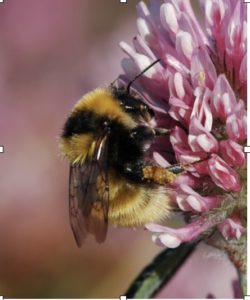No more insect splattered windscreens or grills
“Where have all the flowers gone?” was a song I remember by Peter, Paul and Mary back in the 1960’s. One line states, ” Oh when will they ever learn?”After reading this article it reminded me of the song. “Where have all the insects gone?” is a question we should be asking ourselves. Are we sleeping walking into an ecological Armageddon?
When was the last time you drove your car to find the windscreen or bonnet splattered with insects? Ever wondered why you rarely see this nowadays? The story taken up by the BBC had the headline ‘Splatometer’ to count bug life. The former environment editor of the Independent noticed the same thing – he has even written a book about it, The Moth Snowstorm.
Article.
Three-quarters of the total insect population lost in protected nature reserves
Since 1989, the total biomass of flying insects has decreased by more than 75%. This decrease has long been suspected but has turned out to be more significant than previously thought. This was shown in a detailed analysis of 63 protected nature reserves in Germany. Ecologists from Radboud University together with German and UK colleagues published these findings in the scientific journal PLoS ONE on 18 October.
In recent years, it became clear that the numbers of many types of insects such as butterflies and bees were declining in Western Europe and North America. ‘However, the fact that the number of flying insects is decreasing at such a high rate in such a large area is an even more alarming discovery,’ states project leader Hans de Kroon.
Thorough research
Amateur entomologists in Krefeld, Germany, led by Martin Sorg, collected data over the past 27 years in 63 different nature reserves across Germany. Flying insects were trapped in Malaise traps and the total biomass was then weighed and compared. The researchers have now been able to analyse this treasure trove of data for the first time.
Decline also recorded in well-protected areas
The researchers discovered an average decline of 76% in the insect mass. In the middle of summer, when insect numbers peak, the decline was even more severe at 82%. According to Caspar Hallmann who performed the analyses, ‘All these areas are protected and most of them are well-managed nature reserves. Yet, this dramatic decline has occurred.’
The exact cause of the decline is still unclear. Changes in the weather, landscape and plant variety in these areas are unable to explain this. The weather might explain many of the fluctuations within the season and between the years, but it doesn’t explain the rapid downward trend.
Causes
Researchers can only speculate about the possible causes. ‘The research areas are small and enclosed by agricultural areas. These surrounding areas attract insects that cannot survive there. It is possible that this causes a vacuum in the nature reserves,’ explains Hallmann. It is likely that the results are representative for large parts of Europe and other parts of the world where nature reserves are enclosed by a mostly agricultural landscape.
Wake-up call
‘As entire ecosystems are dependent on insects for food and as pollinators, it places the decline of birds and mammals in a new context,’ states Hans de Kroon. ‘We can barely imagine what would happen if this downward trend continues unabated.’
The researchers hope that these findings will be seen as a wake-up call and prompt more research into the causes and support for long-term monitoring. In the meantime, “We need to do less of the things that we know have a negative impact, such as the use of pesticides and prevent the disappearance of farmland borders full of flowers.” Says De Kroon
Co-author Prof Dave Goulson of Sussex University said “Insects make up about two-thirds of all life on Earth. We appear to be making vast tracts of land inhospitable to most forms of life and are currently on course for ecological Armageddon. On current trajectory, our grandchildren will inherit a profoundly impoverished world.”
Read The Guardian articles; “A giant insect ecosystem is collapsing due to humans. It’s a catastrophe”
Warning of ‘ecological Armageddon’ after dramatic plunge in insect numbers
Original Scientific paper; “More than 75% decline over 27 years in total flying insect biomass in protected areas”
New York Times, Insect Armageddon
With thanks to Prof. Dave Goulson



Recent Comments